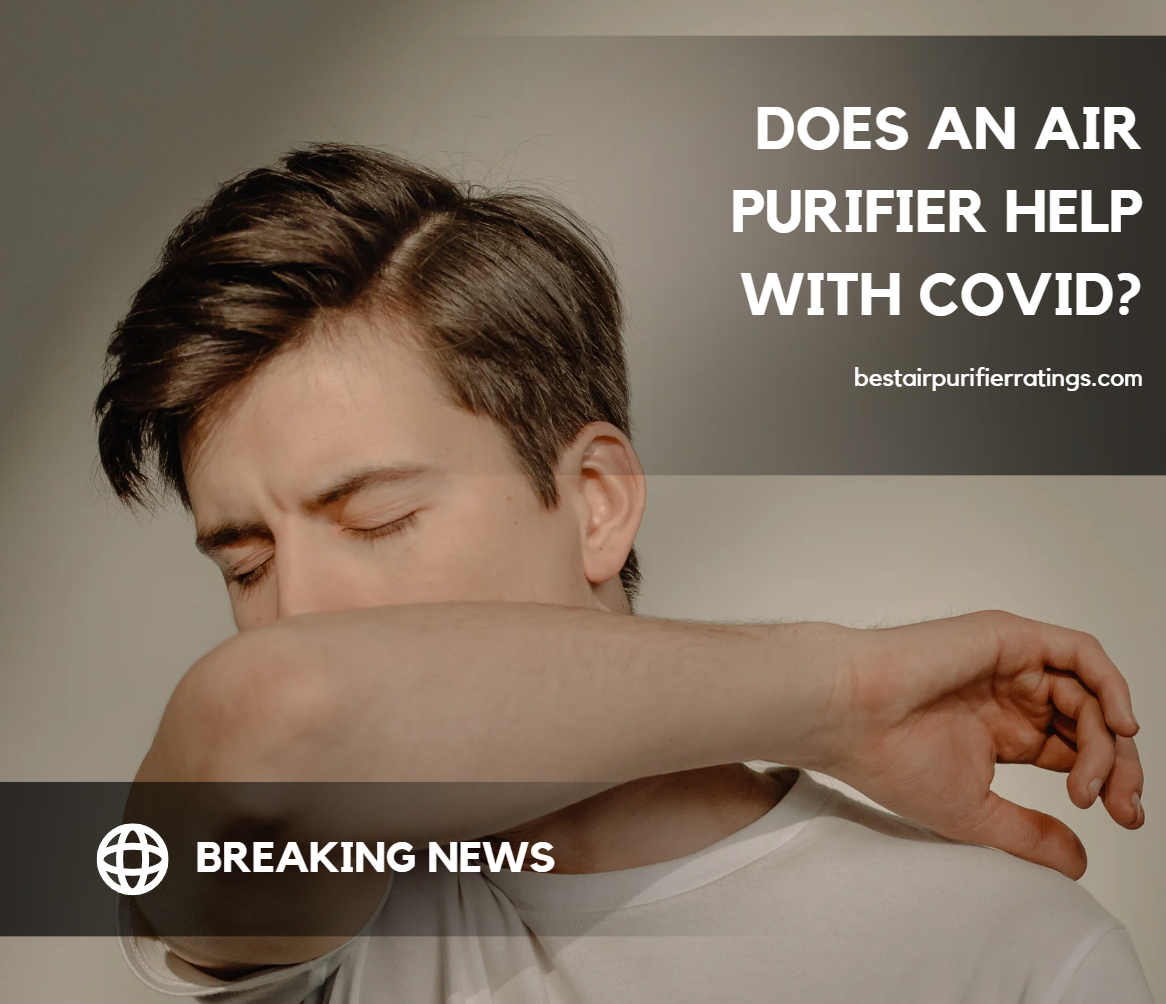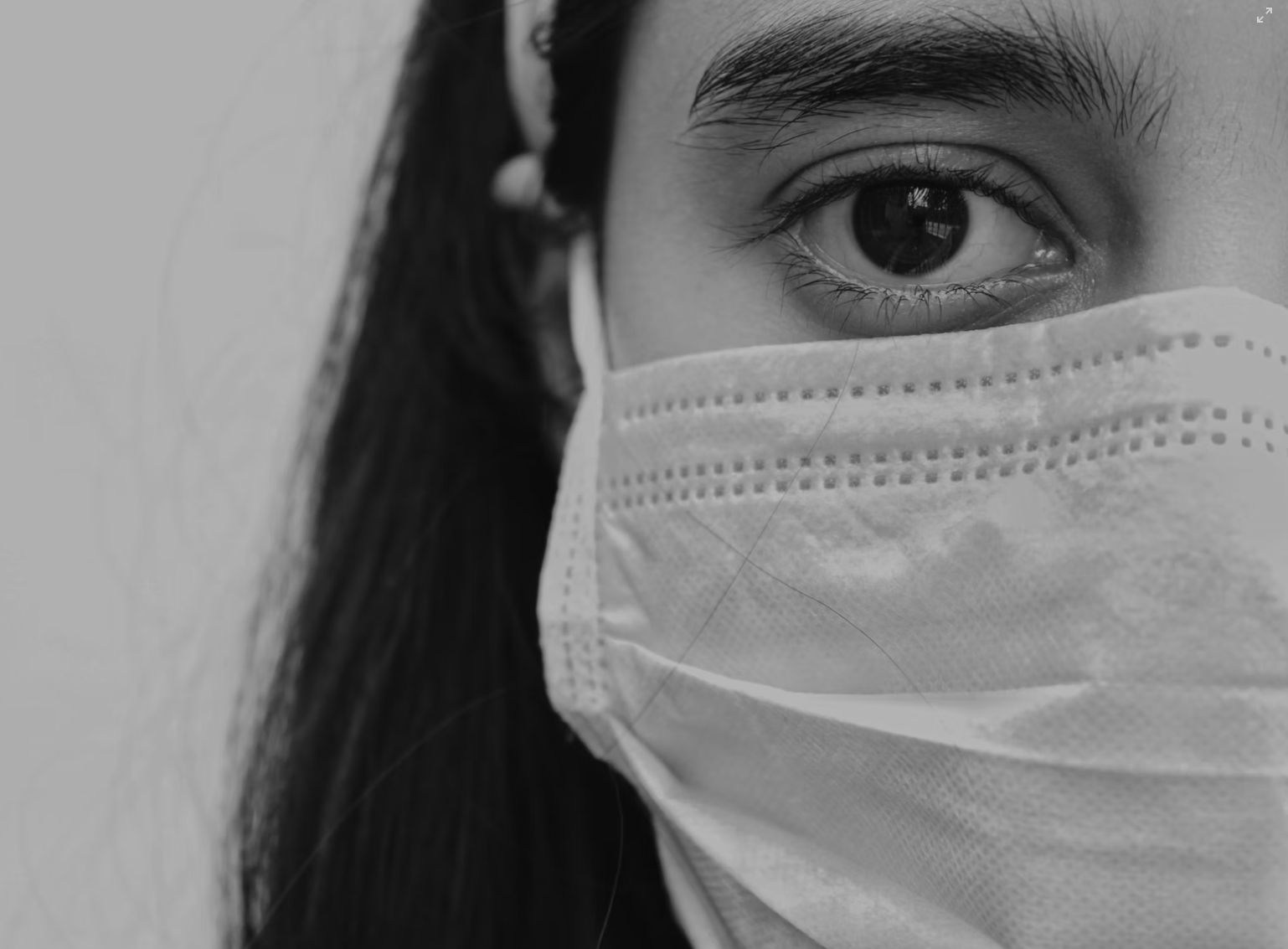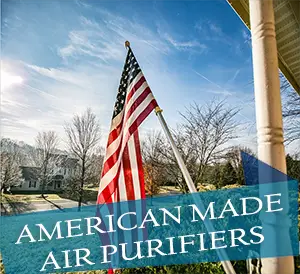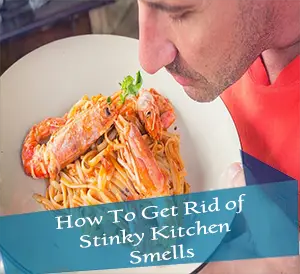
The pandemic is far from over – we need to have clean and healthy air, but does an air purifier help with COVID? Most of us use an air purifier for dust and pet hair, as well as for cooking smells and to keep the air fresher and cleaner. However, can the filters be enough to help reduce the spread of COVID-19?
We wrote this guide because we care about your health – COVID-19 is a serious health issue and every one of us is involved. Along with our standard health and safety protocols, such as social distancing, proper washing of hands, and the like, it makes us wonder: can an air purifier help us slow down the pandemic?
Fortunately, most air purifiers have special filters that can reduce bacteria and viruses in the air. From this idea, we’ll answer your common questions regarding COVID-19 and air purifiers below.
Will an air purifier help protect me from COVID-19 in my home?
The answer is quite complicated, but air purifiers can protect your home against most viruses (including COVID-19) but they should have the following features:
- UV filter or lamp – an air purifier that’s meant for COVID-19 viruses, such as in a hospital setting, should have a UV sterilizer.
- HEPA filter – a High-Efficiency Particulate Air filter will clean small particles up to 99.97% within a size of 0.1 to 0.3 microns.
- High CADR for smoke – the air purifier should have at least 80 CADR (clean air delivery rate) or two-thirds of your room size (area).
Using a UV filter
As mentioned above, a UV filter is recommended if you need the best air purifier for bacteria and viruses, such as COVID-19. That’s because HEPA and true HEPA filters are not enough to catch smaller particles like bacteria and viruses (smaller than 0.1 microns).
UV light works differently from a HEPA filter – it instantly kills bacteria and viruses on its path instead of just catching them in filter media. Aside from viruses, it can also be effective against mold spores (great for areas with high humidity).
When you visit a clinic or hospital, the air purifier that you are likely to encounter is one that has a UV lamp to sanitize bacteria and viruses. Therefore, if you want an air purifier to help remove bacteria and viruses in your home or personal office space, get one that has a UV lamp.
With that in mind, operating a UV lamp should be safely done. Here are some precautions when using the UV sanitizer feature in your air purifier:
- Do not stare into the UV lamp directly
- Make sure the lamp is securely enclosed
- Don’t touch the lamp envelope to avoid fingerprints
- Ensure the lamp is properly installed
- Replace the lamp when needed to avoid explosion
- Consider proper ventilation when using UV lamps
- Avoid excessive heat before operating the lamp
When it comes to replacing the UV lamp, it’s best to look into the manual to avoid getting your eyes and skin compromised. UV can kill viruses and bacteria but if it is mishandled, it could lead to serious injury. Most manufacturers put up instructions on how to safely replace the UV lamp when needed.
Using a HEPA filter
HEPA filters not only help with dust, smoke, and other particles – they can also limit viruses and bacteria depending on the type of HEPA filter you have. With that in mind, when choosing an air purifier, here’s a rundown of the different HEPA filters and how they are different from each other:
| Type of HEPA | Efficiency rate | Particle size |
| HEPA and True HEPA | 99.97% | Up to 0.3 microns |
| H13 HEPA (medical-grade HEPA) | 99.95% | Up to 0.1 microns |
As you can see, medical-grade HEPA is more suitable for most viruses and pollutants in the air since it can trap even smaller particles than standard and true HEPA filters. A strict process is done for air purifier manufacturers when their products are tested to ensure that the air purifier filters do work properly.
We highly recommend getting an H13 HEPA filter alongside a UV lamp (usually integrated within the air purifier) if you are in the following situations:
- Someone in the household or office is a health worker or frontliner
- You frequently receive guests and clients
- You have a big household (many members)
HEPA filters will typically last 6 to 12 months, depending on how long you use them, how often, the number of people coming and going to your home or workplace, pollutant levels in your area, and other factors. Check your manufacturer’s manual to know more about replacing your HEPA filters when needed.
Using an air purifier with high CADR
The Clean Air Delivery Rate or CADR is a major factor when it comes to air purifiers. This is specifically true if you’re managing a commercial or public establishment, such as a restaurant or a hospital, where the air needs to be clean as often as possible.
A high CADR for an air purifier is usually 80 for smoke but it depends on the size of the room or area. Always choose an air purifier that best suits your needs for room size or else your air filters won’t help reduce pollutants and viruses in the air, such as the COVID-19 virus.
CADR is typically measured in the following formula: area of the room x air changes per hour (ACH), and to get the answer in CFM, simply divide it by 60. For instance, if you have a 2,500-square-foot room and you have an air purifier with 5 ACH, you get 208 CFM.
Does COVID-19 live in the air?
Yes, COVID-19 can stay in the air – especially in a closed and crowded room, such as your home, office, or receiving area. Generally, there are three common ways COVID-19 can be transmitted:
- Droplets through sneezing and coughing
- Touching an object with the virus
- Aerosol or airborne transmission
COVID-19 is a mucus-type disease that can be passed by different means. However, an air purifier can only help target the airborne type of transmission, which means that we still need to do other health measures, such as handwashing, social distancing, wearing face masks, and the like.
Droplets from coughing, sneezing, and talking with a person not wearing a face mask cannot be filtered by an air purifier because the infection happens almost instantaneously. It can only be prevented by wearing a face mask and keeping a good distance away from the speaker.
The last type of COVID-19 transmission is the only transmission that an air purifier can help reduce. If the air purifier is strategically placed in the room, it can potentially reduce the chances of a person catching the virus, provided they are doing the health and safety protocols properly.
Air purifiers help greatly to reduce COVID-19 if you’re in a:
- Closed room with poor ventilation
- Crowded room or area
- Close contact with people more often
Can the coronavirus disease spread faster in an air-conditioned house?
There is a higher risk of getting COVID-19 within an air-conditioned space due to the droplets easily moving throughout the room being air-conditioned. If air conditioning is greatly needed, there are ways to help counter this effect, such as:
- proper social distancing between people
- frequent maintenance of the air conditioner
- handwashing and cleaning
This is why you see most restaurants limiting their dining capacities if they are indoors or have a small space – the distance between the guests will help to lessen the likelihood of spreading the droplets from someone who is suspected to have COVID-19.
With that said, does an air purifier help with COVID in an air-conditioned house if it has quality filters? Possibly – especially if you consider True HEPA or H13 HEPA filters, as well as a UV lamp (as mentioned above). Placing it strategically will help reduce the chances of getting COVID-19 indoors.

What is the best way to protect me from COVID-19?
Generally, the best ways to protect yourself against COVID-19 are the following:
| Method | Frequency | How it’s done |
| Wearing of face mask | In close-contact, crowded, and confined (enclosed) places a.k.a. “Three C’s” | Always wear your face mask properly to avoid accidentally inhaling droplets of COVID-19 wherever you go. |
| Proper handwashing | At least 6 to 10 times a day or as needed |
Proper handwashing can help lessen the spread of COVID-19 because you will get rid of the virus using antibacterial soap. |
| Social distancing | As needed – when in the “Three C’s” |
By social distancing often, especially in crowded areas, you will lessen your risk of getting COVID-19 – especially from people you don’t know. |
| Getting vaccinated | As recommended by the government and health experts depending on the brand of vaccine |
Vaccination is still one of the best ways to help protect against COVID-19. However, this does not mean that it can be used alone – wearing of face mask, handwashing, social distancing, and all other methods must be done as well. |
| Healthy lifestyle | As much as possible but depending on your budget |
This includes eating healthy food, exercising, and lessening the consumption of unhealthy substances. This can help make your immune system stronger against COVID-19. |
Air purifiers are also helpful – but only if you get the best medical-grade air purifiers, which have at least H13 HEPA and can filter smaller particles up to 0.1 microns in size. However, it’s greatly recommended to use air purifiers alongside other health and safety methods mentioned above.
Moreover, as a safety measure, it’s best to constantly change your air purifier filters if you suspect someone in the household or office has COVID-19. This will help to reduce the likelihood of the virus being brought back into the air.
FAQs
Where should I place my air purifier to protect against COVID-19?
To stay protected against COVID-19, you might wonder: where should I place my air purifier? First, if you have a suspected patient, make sure to isolate them first. The best area to place it is where the person is isolating in (the room). If you have another one, place one beside the door outside the room.
Why is ozone bad when used by an air purifier?
Ozone generators do more harm than good, which is why the FDA keeps the ozone output limit up to 0.05 ppm. Ozone, when inhaled in large amounts, can potentially lead to lung damage. Therefore, consider an air purifier that is certified by a governing body to not exceed ozone limits.
Which air purifier filter is best for COVID-19?
Air purifiers with at least a HEPA or High-Efficiency Particulate Air filter are best for lessening the likelihood of COVID-19 infections. However, we advise getting at least H13 HEPA (medical-grade) just like the ones you see in hospitals, as well as a built-in UV lamp or sterilizer on the unit.
How long should I use an air purifier to protect against COVID-19?
Air purifiers can be used as much as needed – especially if there is a family member or part of the household who needs to quarantine due to COVID-19. The virus might not be easily killed in one go, but when you run it all day and continue with your health and safety protocols, it will likely ward off the virus.
When should I replace my air purifier filter?
It depends on the manufacturer’s specifications, which can range from 6 to 12 months. More often, many air purifiers have a smart feature called “filter change indicator” so you don’t have to look inside the machine and disassemble it to check if you need to replace your filters.
Conclusion
So, does an air purifier help with COVID? It depends on how you use it. COVID-19 is still an emerging disease that needs further study. As it is a virus, it can be caught and killed using the right filter media. However, don’t depend on air purifiers alone – carry on with your health and safety protocols.
Beating the COVID-19 pandemic is something that requires worldwide teamwork – and it starts within each of us. Whether in the household, office, school, clinic, or somewhere else – COVID-19 is a threat that has claimed lives so let’s do our part to keep our indoor air and surroundings clean.


